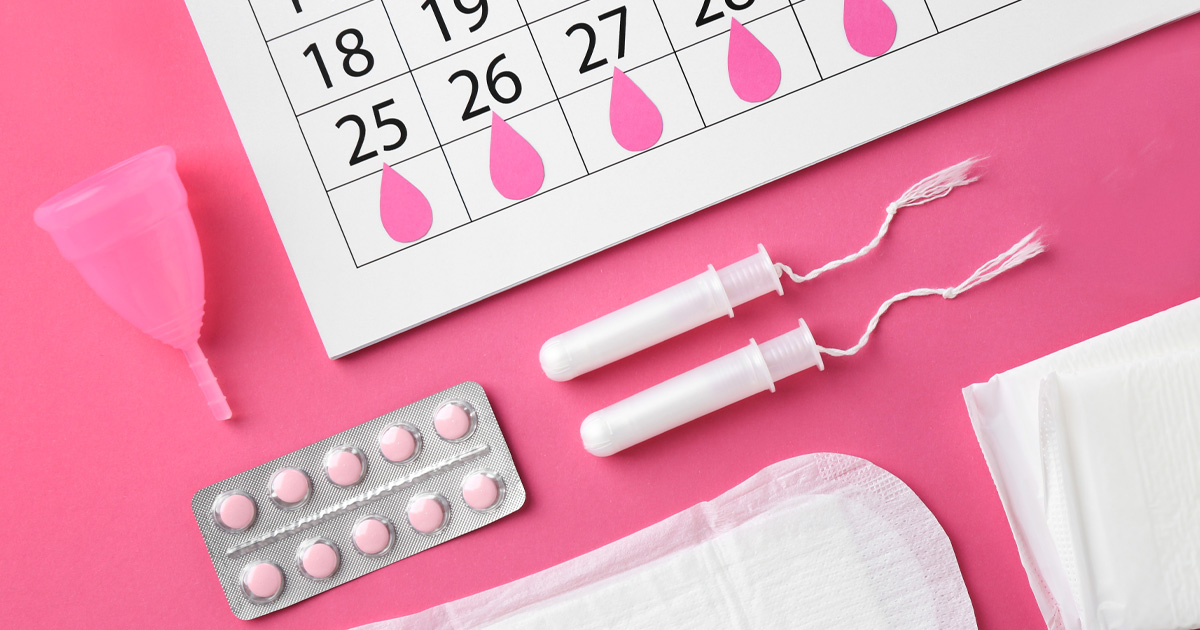
Self-care
10 Surprising Facts About Your Period
Let’s face it — even if you’ve been having periods for years, they can still feel like a mystery sometimes. Maybe you’re experiencing a change in your flow or noticing some unexpected symptoms. The truth is periods are incredibly personal and often misunderstood. So, we’re setting the record straight with a few facts that might surprise you.
Whether you’re looking to feel more confident about your menstrual health, are just curious about your body, or want to know something is worth discussing with your Axia Women’s Health Provider, we’ve got you covered.
-
Not all menstrual cycles last 28 days.
We’ve all heard the “standard” cycle length is 28 days, but that’s just an average—not a rule. A healthy menstrual cycle can range from 21 to 35 days in adults, and even longer for teens. If your cycle is consistently outside of that range or seems to vary month-to-month, it might be time to talk to your provider.
-
Stress and weight changes can affect your period.
Your body’s menstrual cycle is closely tied to your hormonal balance, which can be thrown off by physical or emotional stress, rapid weight loss or gain, and even certain illness. Missing a period now and then isn’t always a red flag, but consistent irregularities deserve a closer look.
-
Heavy, painful periods aren’t something you just have to “deal with.”
If your period is disrupting your life with severe cramping, heavy bleeding, or long durations, that’s not normal. You don’t have to suffer through. Conditions like fibroids, endometriosis, or adenomyosis could be the cause, and the good news is, there are many treatment options available.
-
Yes, you can get pregnant during your period.
While it’s less likely, it’s definitely possible to get pregnant if you have sex during your period, especially if you have a shorter cycle or irregular ovulation. Sperm can live in the body for up to five days, which means fertile windows can overlap. That’s why it’s important to always use a reliable form of birth control if you do not wish to become pregnant. Your Axia Women’s Health provider can help you assess the best option!
-
Tampons and pads aren’t your only options.
If pads or tampons aren’t your thing, you might want to explore some other options. Fortunately, now there’s other things like menstrual cups and period underwear. They’re eco-friendly, may be more cost-effective, and can be a game-changer in comfort and convenience. It’s all about finding what works best for you.
-
Cycle syncing with other women is a myth.
You may have heard that women who live together or spend lots of time together start to “sync up” their period. While it’s a fun thing to believe, research hasn’t found any real scientific proof that this happens. Your body has its own personal rhythm. Learning to track and understand that is one of the best things you can do for your health.
-
There’s a more severe form of PMS called PMDD.
If you experience intense mood swings, anxiety, or depression in the weeks leading up to your period, you may be dealing with Premenstrual Dysphoric Disorder (PMDD). PMDD is a serious but treatable condition that affects about 5–10% of menstruating women. The exact cause of PMDD is unknown, but it’s believed that women with PMDD are more sensitive to the hormone changes around their period. Most importantly, don’t doubt your symptoms, and don’t be afraid to speak up.
-
Period cramps can affect more than just your uterus.
That sharp twinge in your lower back? The shooting pain in your rectum? You’re not imagining it. Prostaglandins, the chemicals that trigger uterine contractions, can affect surrounding muscles and nerves, leading to widespread discomfort during your period.
-
You’ll likely have about 450 periods in your lifetime.
That’s a lot of cycles, a lot of products, and a lot of time spent navigating your body’s rhythm. Tracking your cycle, knowing what’s normal for you, and checking in with your provider regularly can help you stay on top of your reproductive health.
-
And finally…there’s a Disney movie about periods made as early as 1946!
“The Story of Menstruation” was created as an educational short film produced by Walt Disney to be shown in schools. The film aimed to normalize menstruation and provide scientific information and advice to young women. We love to see this support in empowering women to take charge of their bodies!
Whether you’re experiencing irregular periods, painful cramps, or just want to talk about birth control options, our providers are here for you! Axia Women’s Health offers compassionate, personalized care for every stage of your reproductive journey.





































